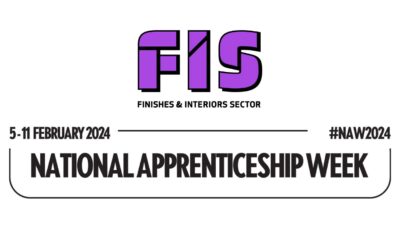
by Clair Mooney | Mar 18, 2022 | Main News Feed
There remain considerable uncertainties regarding the economic impacts of Russia’s invasion of Ukraine as well as the effects of tightening sanctions on Russia.
Whilst demand in the UK economy and construction currently remains robust, strengthening supply chain constraints and higher inflation will inevitably hit growth.
The extent to which this occurs will be dependent on the extent of the conflict and markets’ uncertainty surrounding its impacts, the duration of the conflict and the length of time at which energy costs remain at post-financial crisis peak levels.
This guidance note from the Construction Products Association looks at the potential ramifications on the construction supply chain.

by Clair Mooney | Mar 18, 2022 | Sustainability
The construction sector has hit its first target in its campaign to drive carbon out of the sector.
Last year the Construction Leadership Council launched its CO2nstruct Zero industry-change programme with the aim of eradicating carbon from buildings and infrastructure.
The programme includes a Performance Framework to monitor progress and whether the industry is living up to its commitments.
There are 28 metrics included as part of the framework, covering issues including the reduction of embodied carbon in products, lowering the volume of waste produced by projects and boosting the number of carbon-retrofitted homes.
While some of these metrics will take years to achieve, the campaign has secured its first success, with 90% of planning, design and estimating professionals having access to the relevant Net Zero training and post qualification Continued Professional Development.
This early win is crucial as carbon awareness among designers is seen as an essential enabler for work to cut carbon elsewhere in the construction process.
The CLC has committed to updating the CO2nstruct Zero Performance Framework on a quarterly basis, with today’s publication being the second update. Other positive outcomes reported today include a steep jump in the number of heat pump installers (rising to 3,555) as well as a welcome increase in the number of properties with Energy Performance Certificates.
While this first success helps to sustain momentum, the CLC is clear that there is still a huge amount of work to do to secure the other targets in the framework. To support this the CLC will be launching a series of new initiatives in the coming months including an industry group to secure zero diesel sites, and a focus on funding and finance for retrofit, as well as continuing to work with and grow its current base of 150 supporting companies, a number of whom have a global footprint.
CLC Co-chair and Construction Minister Lee Rowley MP said: “2021 saw CO2nstruct Zero established with industry leaders and Government. 2022 will see us continue to develop and grow the programme, working with our growing network of Business Champions and Partners to co-ordinate and promote our collective progress and influence companies across the sector’s breadth and depth to join our journey”
Hannah Vickers, Programme Director for CO2nstruct Zero and Chief of Staff at Mace, said:
“Delivering a transformed construction sector that is fit for a net zero future will take a huge, collaborative effort from across the entire industry. Ensuring that we’re measuring our collective performance is a vital first step to enable that collaboration – and that’s why the progress we’ve tracked so far is so positive. These are the first steps on a long journey; but one that is crucial to our industry’s future.
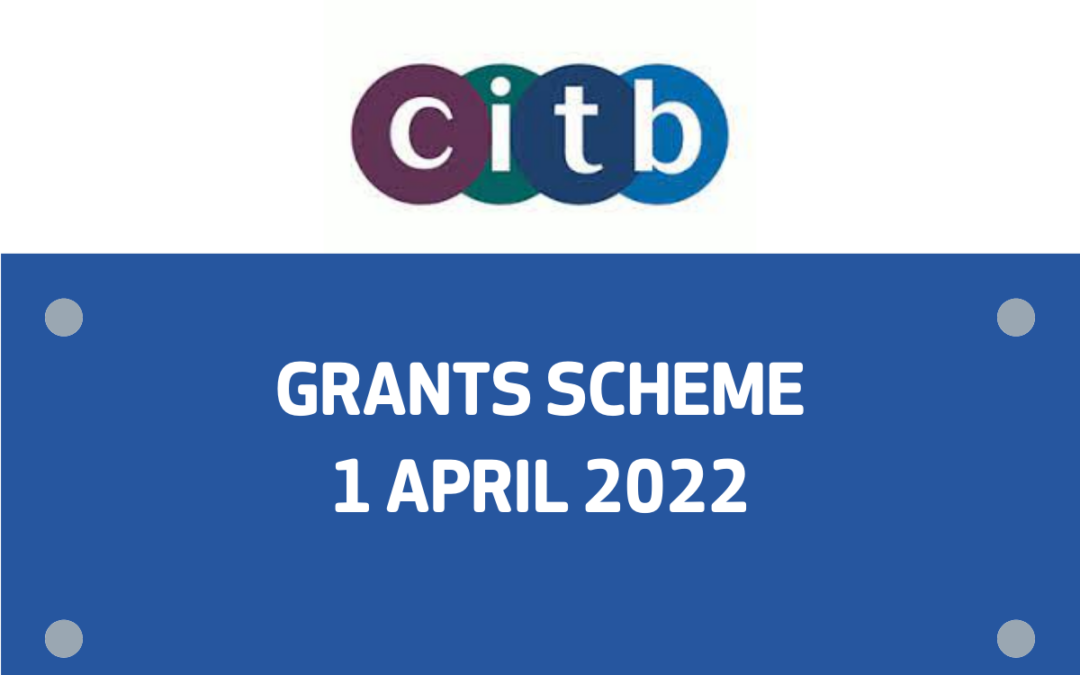
by Clair Mooney | Mar 18, 2022 | Skills
From 01 April 2022 onwards for occupational Traineeships that are only available in England, a one-off CITB grant of £1000 will be available to employers after completion of an 8 to 10 week CITB Occupational Traineeship work placement. Occupational Traineeship are available in:
- Brickwork
- Carpentry and Joinery
- Drylining
- Painting and Decorating
Employers will be able to claim once the traineeship work placement is complete, the evidence required will be email confirmation from the college or certificate to include learner name, course title and completion date. Applications can be submitted to grant.claimforms@citb.co.uk. This grant payment will be in addition to the £1000 paid by government.
Employers can provide up to 10 work placements per region for Traineeships and it is felt this could be a route employers will use to identify their next apprentices. Individuals that have completed a Traineeship may be eligible for an accelerated apprenticeship as they will have already completed a lot of the training and this will reduce the time needed to achieve.
For employers taking on apprentices across the UK CITB will provide an enhanced grant of £2000, the initial £1000 will be paid with the first attendance quarterly payment, with the second £1000 paid with the final attendance payment.
This enhanced grant is for Apprentices who start the Dry Lining Framework or Standard Apprenticeship on or after 1 April 2022. The enhancement is automatically added where the employer is eligible at the same time as the attendance grant is processed. Eligible Apprenticeships:
- England – Level 2 Interior Systems Installer – Drylining Systems (IFATE Standard)
- Wales – Level 2 Interior Systems – Dry Lining knowledge qualification (ACW Framework)
- Scotland – SCQF Level 5 Dry Lining – Finishing/Fixing (SDS Framework)
If the Apprentice changes employer during their apprenticeship the payment will be made to the employer the apprentice is with at that time.
George Swann FIS Skills and Training Lead said:
“This clearly recognises that the core trades in the finishes and interiors sector are short of people and this is having a knock on effect through the entire construction industry. The additional CITB grants are welcome and should help to tip the balance in favour of action for some employers. Remember, if you decide to take on an apprentice or support a traineeship, you are not alone, FIS team is here to help. We’ll be covering how to access these grants and wider funding in our Regional Interventions throughout the Spring”.
New guidance on funding and business support in Scotland
On Tuesday, the Scottish Construction Leadership Forum (CLF) launched a new guide on the funding and business support available to industry. The guide is an action from the CLF Recovery Plan of actions aligned with the Scottish Government’s policies and the Construction Scotland Industry Strategy. The new guide has been produced by the Forum’s Digital Strategy Steering Group, following research by one of its members which showed a need to help businesses access support on digital upskilling.

by Clair Mooney | Mar 16, 2022 | Health and Safety
A COVID-secure titled risk assessment is no longer legally requiredk however COVID-19 still presents a risk to the workplace which employers are required to manage in line with the Management of Health and Safety at Work Regulations 1992.
If FIS members already have a risk assessment in place, they’ll need to review the content and controls, as it is now over to employers to formulate a policy on employee self-isolation.
With the responsibility of keeping workplaces safe and COVID-secure now sitting even more heavily on the shoulders of employers, FIS Associate Member Citation has seen an increase in enquiries on how to manage COVID-risk. To help address this, they have created a free checklist covering everything employers need to know.
The free guide can be downloaded from https://tinyurl.com/fislearningtolive2022
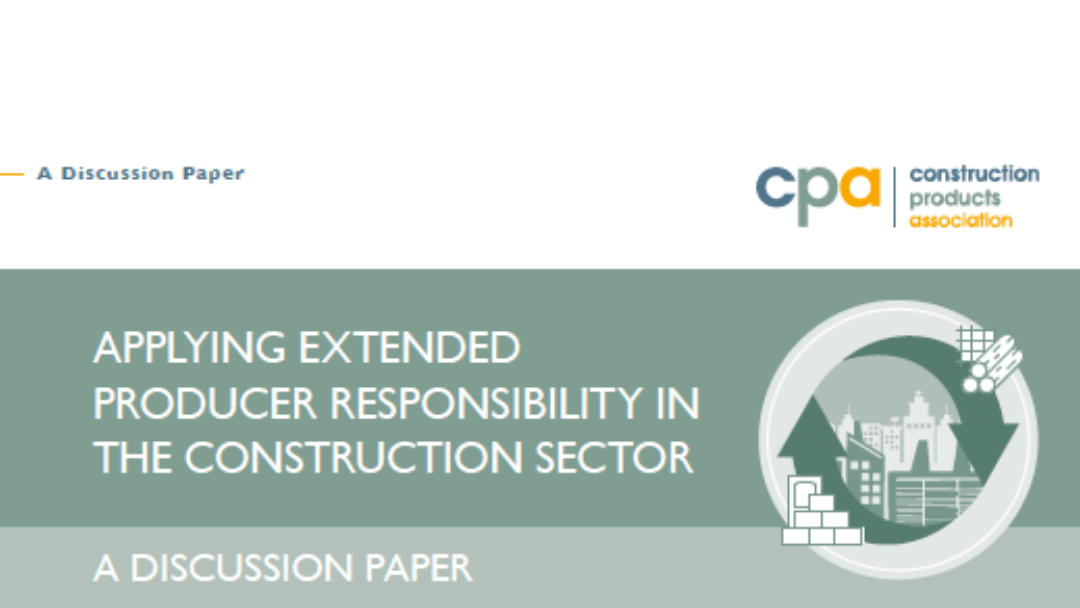
by Clair Mooney | Mar 14, 2022 | Sustainability
The Construction Products Association has published a discussion paper on extended producer responsibility (EPR):
Applying EPR in the Construction Sector Discussion Paper (constructionproducts.org.uk).
This discussion paper seeks to explore the applicability of the concept of Extended Producer Responsibility (EPR) to construction products – is it applicable to all, to some, or no products at all? And whether any general principles to guide potential application can be identified.
EPR is applied in a variety of policies and regulations to transfer responsibility for management of waste products to the producer. Existing EPR schemes already exist to cover, for example, end of life vehicles (ELV) or waste electrical and electronic equipment (WEEE). This paper reflects on how EPR schemes have been applied in those sectors and how it might apply to the construction product sector – and to which products.
EPR can support better practice in the industry, such as minimising over ordering, increasing reuse or encourage high value recycling and could become one of the tools required to shift the industry towards a more circular economy approach – not the only tool.

by Clair Mooney | Mar 11, 2022 | Main News Feed
To help clients and the industry to implement procurement practices that will deliver safer buildings post Grenfell, the Government has published guidance on collaborative procurement for design and construction to support building safety. Dame Judith Hackitt and other speakers will be formally launching the guidance at a free online event on Monday 28 March between 2-4pm.
The New Hospital Programme (NHP), which is developing 48 hospitals by 2030, has published its first commercial pipeline to give suppliers visibility of current and future contract opportunities. It provides information on proposed projects up to 2024, including estimated contact value, start date, length and sourcing route.

by Clair Mooney | Mar 11, 2022 | Main News Feed
The
latest information from Builders’ Conference shows that
451 contracts worth £6.1 billion were awarded in February. Whilst the number of contracts increased again, the value dipped slightly, although it was consistent with the monthly average over the last year (£6.2 billion). 78% of all the contracts awarded by value were in the private sector. Overall, there were 152 housing projects worth £2.4 billion (39%), the largest of which was a £320 million project to build over 1,200 homes in Watford; 64 office projects totalling £684 million (11%); and 56 education projects worth £524 million (9%).
The number of tender opportunities was 9% lower than the previous month and 49% below the monthly average for the past year.

by Clair Mooney | Mar 11, 2022 | Health and Safety
In November 2020, a court judgment found that the UK had failed to adequately transpose aspects of two EU Directives into domestic law with respect to worker safety. In reaction HSE has confirmed that the Personal Protective Equipment at Work Regulations will be amended from 6 April 2022 to ensure that agency and temporary workers ‐ so called limb (b) workers ‐ are provided with the same PPE protections as employees. Those who have self‐employed status are not included and the HSE has published interim guidance to help employers prepare.
The definition of self-employed here has created some confusion, with the guidance stating:
Generally, workers who come under limb (b):
- carry out casual or irregular work for one or more organisation
- after 1 month of continuous service, receive holiday pay but not other employment rights such as the minimum period of statutory notice
only carry out work if they choose to
- have a contract or other arrangement to do work or services personally for a reward (the contract doesn’t have to be written) and only have a limited right to send someone else to do the work, for example swapping shifts with someone on a pre-approved list (subcontracting)
are not in business for themselves (they do not advertise services directly to customers who can then also book their services directly)
Where workers now fall into this definition organisations will have to provide all workers falling in scope with the correct PPE necessary for health and safety free of charge, as well as maintain and replace it as necessary.

by Clair Mooney | Mar 11, 2022 | CSCS, Skills
The CLC stated that, “By 31 March 2022, all card schemes must use smart technology which has the capability to electronically check agreed information relevant to a cardholder, using a common interface, without the need to manually enter data.” In March 2021 the partner card forum (now CSCS Alliance) set-up a delivery group of representative members in order to deliver on the CLC objective.
The Delivery Group appointed technology consultancy firm StableLogic, to support them with the design and procurement of a new system to deliver on the CLCs requirement. Following a detailed investigation into existing technologies of partner schemes and procurement process, the Delivery Group and selected supplier are in the final stages of testing on the new application, to be known as CSCS Smart Check.
The proposed App covers more than 2 million CSCS and partner scheme cards across all 38 CSCS Partner Schemes. The collaborative process represents a blueprint and exemplar for what can be achieved with a shared objective and willingness to raise standards and work together across a complex digital environment.
Industry should be aware of key dates and times; this link will take you to the CSCS web page showing all details webinars will be hosted jointly by representatives from CSCS and the Smart Check Delivery Group.
CSCS is hosting a series of CSCS Smart Check webinars ahead of the app’s rollout in April which are intended to provide industry with an overview of the application, training and support materials, and any key updates which will need to be considered. Attendees can register for their preferred webinars via the link above.
George Swann FIS Skills and Training Lead said:
“Contractors, employers, site supervisors and managers are strongly advised to take advantage of this new App when its available in April, to ensure your organisation does not fall foul of legislation. It’s not just about an unqualified workforce fake credentials are often used in illegal activities including modern slavery”

by Clair Mooney | Mar 10, 2022 | Skills
Employers must apply for the £3,000 incentive payment for hiring a new apprentice
If you hired a new apprentices between 1 October 2021 and 31 January 2022 and these apprentices have an apprenticeship start date between 1 October 2021 and 31 March 2022, employers could be eligible for the £3,000 incentive payment for hiring a new apprentice. Applications for the incentive payment close on 15 May 2022.
How employers apply
Employers should check their apprentices’ eligibility – they must have:
- an employment start date from 1 October 2021 to 31 January 2022
- an apprenticeship start date from 1 October 2021 to 31 March 2022
To receive the payment, employers must submit an application for each eligible apprentice using their apprenticeship service account.
Use the Education and Skills Funding Agency (ESFA) step-by-step guide for more information.
When applying for the incentive payment for hiring a new apprentice, employers should make sure they have:
- added the correct PAYE schemes, that they use to pay their apprentices, to their apprenticeship service account, in line with the service terms and conditions
- only applied for eligible apprentices and they have documentation which can validate their claim, as listed in the apprenticeship funding rules
- checked their training provider has the correct National Insurance Number for each of their apprentices, and that they have included this in their funding submissions
If any information is incorrect, this will delay payments. If you have a query about the incentive payment, check the help articles in the ESFA help portal

by Clair Mooney | Mar 10, 2022 | Skills
Construction apprenticeships come out on top in Scotland, despite pandemic challenges. Figures recently released by Skills Development Scotland (SDS) indicate construction apprenticeships have bounced back from the pandemic, stronger than ever. The Modern Apprenticeship Statistics report reveals that the number of Construction and Related Modern Apprentices (MAs) in training for the end of quarter three 2021-22 was 12,814, which is 254 more apprentices than in 2019-20 and account for 32% of the 34,000 apprentices in Scotland. Construction is also the first sector to return to pre-pandemic levels.
In comparison the total numbers for the same period in the Finishes and Interiors Sector are:
Number of registered apprentices:
- England:
- Interior Systems Installer ST0388 = 90 (average annual starts 150)
- Plasterer ST0096 = 470 (average annual starts 629)
- England old framework (VQ outcome) = 62 Interior System, 240 Plastering
- Scotland = 88 Interior Systems, 70 Plastering
- Wales = 9 Interior Systems, 51 Plastering
- Completed VQ’s in Interior Systems = 1720
- Completed VQ’s in Plastering = 1380
A few factors will have contributed to the thriving numbers, including the Apprenticeship Employer Grant of £5,000, which was launched by the Scottish Government and SDS back in 2020-21. Additionally, those employers were supported by approximately £1.25m in CITB attendance grants. To date, there are 4,500 apprentices in Scotland with Levy-registered employers, who benefit from just over £90m in direct and indirect grants from CITB and SDS.
With much of the industry relying on word-of-mouth methods to recruit, it can be difficult to reach a more diverse range of applicants. Looking ahead, FIS is keen to support employers in this space, helping them create a more inclusive workplace, where the sector can benefit from the wide range of skills and traits.
George Swann FIS Skills and Training Lead says. “Wherever you are located in the UK, if your organisation is looking to take on apprentices now is the time to get vacancies up on platforms like Construction TalentView: Employer Registration and National Apprenticeship Services: Creating an Apprenticeship Advert to see existing vacancies go to: Find Apprenticeships Dryliners .
FIS is happy to support with any skills and training questions. Contact George on 07553 874838.

by Clair Mooney | Mar 10, 2022 | Skills
The largest and longest-running construction skills competition in the UK returns, as registration opens for SkillBuild 2022. SkillBuild is delivered by CITB and forms a part of WorldSkills UK, often dubbed the ‘skills Olympics.’ As preparations for another year get underway, WorldSkills UK are on the look-out for talented construction trainees to go head-to-head in a bid to be crowned the winner of their chosen trade.
The regional qualifiers run UK-wide, from April to June each year. During the one-day event, competitors will be tested not only on their technical abilities, but on their time management, problem solving and skills working under pressure. Across WorldSkills as a whole, there are more than 60 competitions available. Included in this are nine Foundation Skills competitions aimed at learners with special educational needs and disabilities, additional learning needs, or who need additional support for learning. Those who excel in the qualifiers will be invited to take part in the national finals, in November 2022.
Specifically for the finishes and interiors sector are competition categories for Plastering and Plastering and Drywall Systems, Joinery, Carpentry and Furniture and Cabinet Making. For more information and details of how to enter go to: https://www.worldskillsuk.org/competitions-category/construction-infrastructure/

by Clair Mooney | Mar 9, 2022 | Main News Feed
All timber originating from Russia and Belarus is ‘conflict timber’ and therefore cannot be used in PEFC-certified products, the Board of PEFC International clarified today.
PEFC is extremely concerned about the Russian government’s attack on Ukraine. The military invasion is in direct opposition to our core values. This aggression causes unspeakable and unacceptable pain and death to innocent people, including women and children. It also has an immediate and long-term destructive impact on the environment, on forests, and on the many people that depend on forests for their livelihoods.
The clarification that timber from Russia and Belarus is conflict timber follows an extraordinary meeting by the PEFC International Board to discuss Mr Putin’s military aggression against Ukraine and its implications for PEFC and PEFC-certified forest owners and companies.
The categorisation of timber from Russia and Belarus as conflict timber follows the adoption of the Resolution on Aggression against Ukraine by the United Nations General Assembly, which “deplores in the strongest terms the aggression by the Russian Federation against Ukraine […] [and] the involvement of Belarus”.
The PEFC International Board continues to monitor the situation and will consider additional measures as necessary.
PEFC has created a set of FAQs which is available at https://pefc.org/conflict-timber-faq
The clarification that timber from Russia and Belarus is to be categorised as ‘conflict timber’ is based on the UN General Assembly Resolution A/ES-11/L.1 (2 March 2022) “Aggression against Ukraine” during the 11th Emergency Special Session, to safeguard the integrity of PEFC chain of custody certification. This clarification is initially valid for six months.
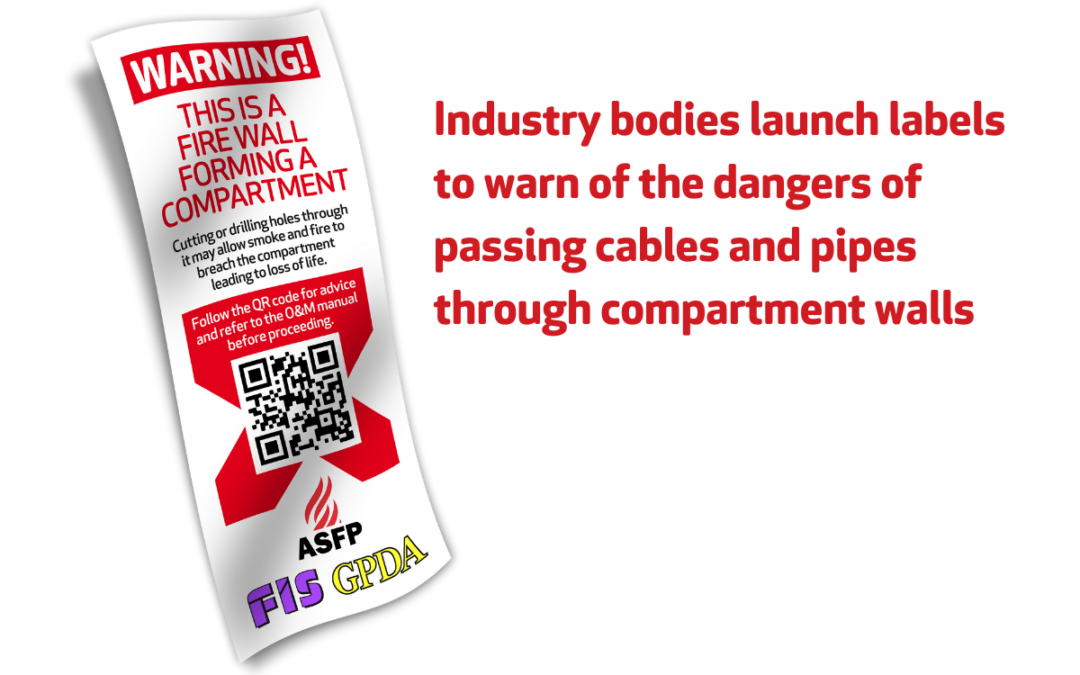
by Clair Mooney | Mar 9, 2022 | Building Safety Act, Technical
The leading trade bodies representing fire protection, the fit-out and interiors sector and plasterboard manufacturers have come together to warn of the dangers in passing cables and pipes through firewalls used for compartments in buildings.
FIS joined forces with the Association for Specialist Fire Protection (ASFP) and the Gypsum Products Development Association (GPDA) to launch a labelling initiative to provide instant guidance on what to do when considering whether and how to pass cables and pipes through compartment walls.
One of the biggest issues facing M&E contractors who are employed to pass services through a building, is that they may not be aware that the partitions they need to pass through are fire rated, and any holes cut into them will negate the performance of the partition. This may allow smoke fumes and fire to pass through from one compartment to another, which could lead to loss of life, extensive damage to the building and have huge impacts on any business.
Often the route for these services is at high level through the void above ceilings, so the new labels will be placed on the firewall in the ceiling void by the contractors so that any facility manager, M&E or cabling contractor will be instantly aware of the performance of the compartment wall and importantly, where to find guidance in future.
The labels can be printed from a downloable pdf available at www.thefis.org/knowledge-hub/technical/fire-protection/firestopping/fire-labelling/
ASFP, FIS and GPDA all believe that this simple initiative is not only good practice but has the potential to save lives and property.

by Clair Mooney | Mar 7, 2022 | Health and Safety
Managing sickness absence within a business has always posed a large obstacle for employers. FIS Associate Member Citation has received a surge in sickness absence concerns from employers over the last few weeks, ranging from employees testing positive with COVID-19 and employees being reluctant to return to work due to health concerns surrounding the pandemic, to more typical start-of-the-year sickness absence issues.
With more and more employees experiencing long COVID-19 symptoms, employers are losing increasing amounts due to work long-term sickness and, without the appropriate policies and procedures, this could be a huge loss for employers.
To help FIS members, FIS Associate Member Citation has created two guides on how to manage both long and short-term sickness absences.
Managing long-term sickness absence
From creating a policy and return-to-work processes, to avoiding a discrimination claim, this includes important advice from our experts on how to best manage long-term sickness absence, in a world which is consistently evolving due to COVID-19. Guidance available at https://tinyurl.com/fislongtermsickness2022
Managing short-term sickness absence
The government reports that two-thirds of small businesses (62%) do not have formal sickness absence policies in place. In order to manage this in the best possible way it is important that you, as the employer, consider implementing a fair and clear process to help identify repeat offenders, deter other employees from not turning up to work, and ultimately retain as many employees as possible in the workplace. This guidance covers what processes you should put in place, managing recurring absences and more. Guidance available at https://tinyurl.com/fissickness2022

by Clair Mooney | Mar 3, 2022 | Main News Feed
The National Cyber Security Centre (NCSC), the UK’s technical authority on cyber security, have issued
guidance for organisations on the steps they need to take to bolster the UK’s resilience against the heightened risk of malicious cyber incidents in and around Ukraine. We know many organisations and businesses in the UK have well laid out plans and good cyber security measures in place. However, due to the nature of online global networks, attacks that occur overseas could have an impact on UK institutions, services and systems. This is why organisations and businesses are being urged to take action now.
While the NCSC is not aware of any current specific threats to UK organisations in relation to events in and around Ukraine, the guidance encourages organisations to follow actionable steps that reduce the risk of being impacted by cyber attacks, including:
- patching systems;
- improving access controls and enabling multi-factor authentication;
- implementing an effective incident response plan;
- checking that backups and restore mechanisms are working;
- ensuring that online defences are working as expected, and;
- keeping up to date with the latest threat and mitigation information.
For further information visit: https://www.ncsc.gov.uk/guidance/actions-to-take-when-the-cyber-threat-is-heightened where you will find the relevant advice, actions and resources.

by Clair Mooney | Mar 3, 2022 | Main News Feed
Following the lifting of the remaining coronavirus restrictions in England, Build UK has updated its COVID‐19 flowchart to reflect the latest Government guidance. Individuals who test positive are now advised to stay at home, rather than it being a legal requirement, and they are no longer required to tell their employer if they need to self‐isolate.
Following the end of routine contact tracing, the Test and Trace Support Payment scheme has ended. Individuals who were required to self‐isolate before 24 February can still submit an application for payment up to 42 days after their first day of self‐isolation until 6 April.
The Coronavirus Statutory Sick Pay Rebate Scheme will close on 17 March, and employers with fewer than 250 employees can submit claims for up to two weeks of coronavirus‐related SSP until 24 March.
Face coverings are no longer mandatory on the London transport network but customers are still strongly recommended to wear them.

by Clair Mooney | Mar 1, 2022 | Drylining, Technical
FIS has today launched its Specifiers’ Guide to Drylining to help specification writers fully understand the criteria when writing a specification for drylining, including partitions, wall linings and shaft wall systems.
The Specifiers’ Guide – Drylining was produced by the FIS Drylining Working Group which comprises representation from manufacturers, designers and contractors working in the drylining sector. Pulling together decades of experience, this guide is the third in the series of guides and is designed to help specifiers and designers understand the questions that should be addressed before the specification can be produced and then how the specification should be structured, and which standards referenced.
Commenting on the guide, Iain McIlwee, Chief Executive of FIS said:
“Specifying drylining seems, on the face of it, simple enough: consider the look, performance and cost, and there it is. If only it were that simple there would not be cases where evidence of fire compartmentation could fail or fail to perform because the issue wasn’t apparent during the specification process.”
The guide includes top tips when specifying drylining, as well as reference material to regulations for safety, fire performance and standards.
“A well written specification not only ensures the installation meets the client’s requirements, but it also means the specifier’s requirements are less open to interpretation, which is key for the whole supply chain if they are going to deliver the quality and detail first time, on time,” added Iain McIlwee.
The guide sits alongside other FIS best practice guides that relate to drylining:
Installation of Drylining
Site Guide:Drylining
These guides work well when they are included in proposals and project plans to demonstrate how to best approach a project. They are also good differentiators when someone is in competition with non-members, and are an excellent introduction to new members of the team and any trainees and apprentices.
FIS plans to have CPD material to accompany the guide later in the year.

by Clair Mooney | Feb 25, 2022 | Skills
FIS is excited to announce the return of Regional Workshops, with the first event since before the pandemic scheduled for Central London on the 22nd March. This will be followed by a series of events in Bristol, Leicester, Dartford, Manchester and Glasgow running through to May.
With labour shortages and recruitment a key challenge within the sector, the core theme for these events is a collective response to labour shortages and attracting the next generation of workers. Time will be allowed for open discussion and networking.
The core aim is to look individually and collectively at how we can better target recruitment through schools, colleges and local networks, develop local training networks and access all available funding to build a sustainable workforce. Focus will be on understanding local need and opportunities, developing a network of ambassadors and looking particularly at apprenticeships, but also the wider vocational qualification landscape and competency in the existing workforce.
The FIS team will be supported by representatives of CITB and local speakers aiming to give members fresh ideas, a clear plan of action and understanding of the support available to attack their skills gap. This will include ideas and resources to support approaches to local schools, how to work more effectively with the Department of Work and Pensions, case studies and a list of initiatives and funding that can support your recruitment efforts and induction and development of workers. Details of the support available from CITB for recruiting and qualifying people will also be given and there will be plenty of time for questions.
Six events have been scheduled to be held across the UK. These are breakfast events 07:30 until 09:45 so employers can attend, get a bit of breakfast discuss recruitment and qualification needs and identify how FIS can help prior to starting the working day.
Locations
London – 22 March
Leicester – 30 March
Bristol – 5 April
Dartford – 26 April
Manchester – 10 May
Glasgow – 11 May
Please look out for your individual email invitation from FIS or reserve your place via the FIS Events page. If you would like more information contact Skills and Training Lead George Swann on 07553 874838 or email georgeswann@thefis.org

by Clair Mooney | Feb 25, 2022 | Main News Feed
The Prime Minister has announced the Government’s Living with COVID‐19 plan, which will see the remaining coronavirus restrictions in England lifted from 24 February 2022. Emphasising the need to ‘begin to treat COVID‐19 as other infectious diseases such as flu’, the Government has confirmed the restrictions will be withdrawn as follows although the updated guidance has not yet been published:
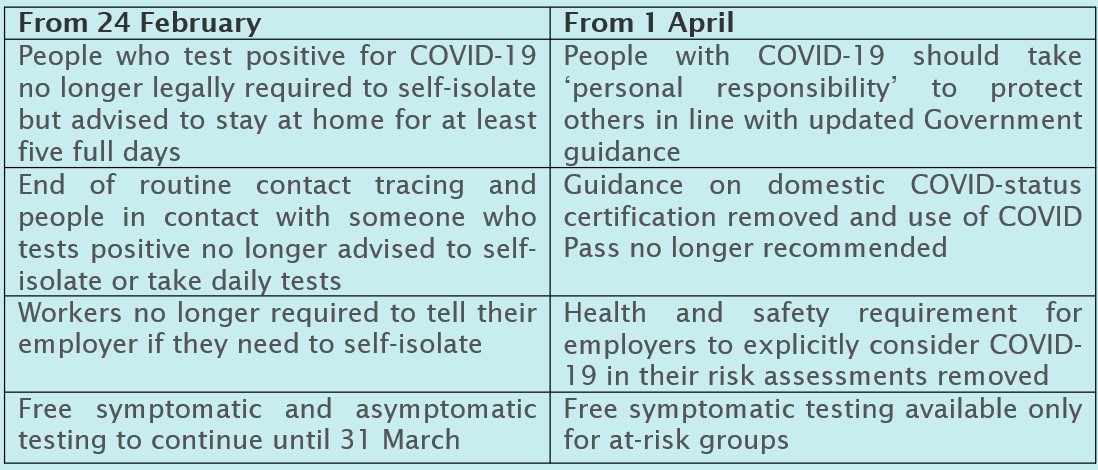
Different restrictions remain in place in Scotland, Wales and Northern Ireland.












